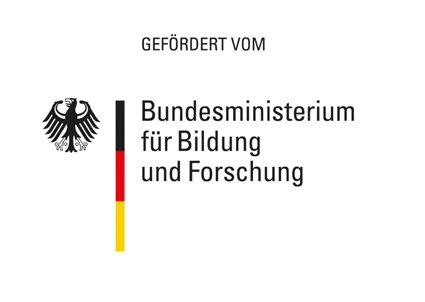SEEGEN
Collaborative project: Seelische Gesundheit am Arbeitsplatz Krankenhaus (mental health at the workplace hospital)
Subproject 1.D: Reconciliation of Work and Family in Hospitals
Keywords
Individualized Company Health Management, Behavioral Prevention, Structural Prevention, Complex and Transferable Intervention, Work-Life Balance, Reconciliation of Work and Family, Stress Management Training, Participative Structures for Work-Life Balance
Project Management
Prof. Dr. med. Harald Gündel, Department of Psychosomatic Medicine and Psychotherapy at the University Hospital Ulm (overall project manager and project management TP 1.D and TP 2)
Dr. med. Eva Rothermund, Department of Psychosomatic Medicine and Psychotherapy at the University Hospital Ulm (project management TP 1.D)
Prof. Dr. phil. Ute Ziegenhain, Department of Child and Adolescent Psychiatry/Psychotherapy at the University Hospital Ulm (project management TP 1.D)
Cooperation Partners
The collaborative project SEEGEN on mental health at the workplace hospital is a network of various project and practice partners and is divided into the following subprojects:
TP 1.A Sensitizing senior executives for the company health management of the clinic:
- PD Dr. phil. Andreas Müller, Institute Occupational and Social Medicine, University Hospital Düsseldorf
- Prof. Dr. med. Peter Angerer, Institute Occupational and Social Medicine, University Hospital Düsseldorf
- Practice partner: Helios-Kliniken Nordrhein-Westfalen
TP 1.B Dilemma competence training for managers:
- Prof. Dr. rer. soc. Jochen Schweitzer-Rothers, Institute of Medical Psychology, University Hospital Heidelberg
- Dr. Julika Zwack, Institute of Medical Psychology, University Hospital Heidelberg
- Ulrike Bossmann Institute of Medical Psychology, University Hospital Heidelberg
- Practice partner: GRN Gesundheitszentren Rhein-Neckar
TP 1. C Health-related leadership competence:
- Prof. Dr. med. Stephan Zipfel, Department of Psychosomatic Medicine and Psychotherapy, University Hospital Tübingen
- Dr. med. Florian Junne, Department of Psychosomatic Medicine and Psychotherapy, University Hospital Tübingen
- Prof. Dr. med. Monika Rieger, Institute of Occupational and Social Medicine and Health Services Research, University Hospital Tübingen
- Practice partner: University Hospital Tübingen
TP 1. D Reconciliation of work and family in hospitals:
- Prof. Dr. med. Harald Gündel, Department of Psychosomatic Medicine and Psychotherapy, University Hospital Ulm
- Dr. med. Eva Rothermund, Department of Psychosomatic Medicine and Psychotherapy, University Hospital Ulm
- Prof. Dr. phil. Ute Ziegenhain, Department of Child and Adolescent Psychiatry/Psychotherapy, University Hospital Ulm
- Dr. biol. hum. Lucia Jerg-Bretzke, Department of Psychosomatic Medicine and Psychotherapy, Section Medical Psychology, University Hospital Ulm Practice partner: Kliniken Ostalb
- Dr. med. Imad Maatouk, Department of General Internal and Psychosomatic Medicine, University Hospital Heidelberg
- Practice partner: University Hospital Heidelberg
TP 2 Complex intervention:
- Prof. Dr. med. Harald Gündel, Department of Psychosomatic Medicine and Psychotherapy, University Hospital Ulm
- PD Dr. phil. Bernd Puschner, Department of Psychiatry and Psychotherapy II, University Hospital Ulm
- Dr. Anja Sander, Institute of Medical Biometry and Informatics, Department of Medical Biometry, University Hospital Heidelberg
- Prof. Dr. sc. hum. Meinhard Kieser, Institute of Medical Biometry and Informatics, University Hospital Heidelberg
- Dr. Karl Blum, Research Division, Deutsches Krankenhausinstitut e.V.
TP 3 Business and organizational support:
- Prof. Dr. rer. pol. Stefan Süß, Chair of Business Administration, in particular Organization Studies and Human Resource Management, Heinrich Heine University Düsseldorf
- Dr. rer. soc. Sascha Ruhle, Chair of Business Administration, in particular Organization Studies and Human Resource Management, Heinrich Heine University Düsseldorf
Project Term
09/2017 – 8/2021
Background & Aim of the Project
Healthcare workers are exposed to increased work-related stress and work in terms of health risks in a "high-risk area". Demographic change, a shortage of skilled staff and limited financing for hospitals are exacerbating this problem. Health risks for employees can be reduced through systematic corporate health management that combines behavioral- and structural-preventive elements. However, this is missing in most German hospitals. The overall objec-tive of this collaborative project is to develop a complex intervention as a contribution to occupational health management, which includes both qualification and organizational development measures.
In this context, the subproject TP 1.D focuses on the prevention of stress-associated health problems in the context of worklife balance in hospitals and addresses employees with family as a target group. The aim is to develop and pilot an intervention, the socalled "Toolbox Vereinbarkeit Beruf und Familie“ (toolbox of work and family reconciliation), in which behavioral-preventive group offers for those affected (e.g. workshops) are combined with structural-preventive instruments (e.g. round tables, management boards).
Description of the Project
The collaborative project is divided into two phases. In phase I (2017-2019), five in-tervention modules will be developed in the individual subprojects (TP 1. A-E, see above) and evaluated differently according to format and study situation. In addition, strategies for their implementation will be tested at the individual practice sites. In phase 2 (2019-2021), the modules developed in the subprojects will be implemented participatively at three hospital sites into a complex intervention whose effectiveness will be evaluated in a cluster-randomized study (TP 2 and TP 3).
As part of phase I of the subproject TP 1.D, the intervention will be developed and piloted in a mixed methods research design with qualitative and quantitative methods at the practice site Kliniken Ostalb. Following a needs assessment with qualitative individual interviews with those affected, the individual intervention modules are developed on the basis of the model of Campbell et al. (2000). The intervention is tested in a single-arm evaluation study with an intraindividual before and after comparison and evaluated regarding predefined targets in relation to results and process. The results will be incorporated into phase II of the collaborative project.
Contact Address
Funded by
Bundesministerium für Bildung und Forschung (BMBF)
Projektträger: Deutsches Zentrum für Luft- und Raumfahrt e.V.
